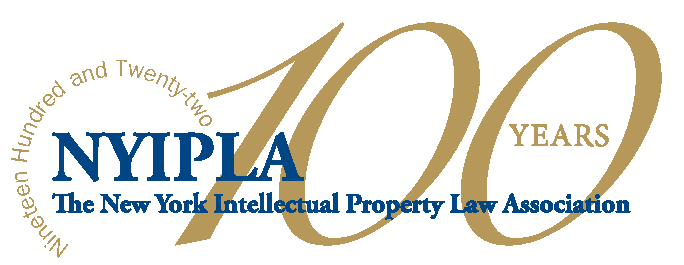NYIPLA Urges Supreme Court to Reverse Federal Circuit Decision Restricting Judicial Review of Ultra Vires Conduct by PTO in IPRs
The amicus brief was submitted on behalf of the NYIPLA by Dorothy Auth of Cadwalader Wickersham & Taft LLP, President of the NYIPLA, as well as Eugene Gelernter, Irena Royzman, Jason Vitullo of Patterson Belknap Webb & Tyler LLP, Charles R. Macedo and David Goldberg of Amster Rothstein & Ebenstein LLP. Mr. Macedo and Dr. Royzman are Co-Chairs of NYIPLA’s Amicus Briefs Committee and Robert Isackson is the NYIPLA Board Liaison.
On Thursday, February 25, 2016, the NYIPLA filed an amicus brief on the merits in advance of the Supreme Court’s argument in Cuozzo Speed Technologies, LLC v. Lee, No. 15-446. A copy of the NYIPLA’s brief can be found here. The NYIPLA previously submitted an amicus brief urging the Court to grant a writ of certiorari in this matter. The NYIPLA’s earlier amicus brief can be found here; and the substantive brief of the Petitioner Cuozzo Speed Technologies, LLC (filed on February 22, 2016) can be found here.
The NYIPLA asks the Supreme Court to reverse the Federal Circuit’s holding that, in an appeal from a final decision of an inter partes review (“IPR”), the court lacks jurisdiction to consider if the PTO exceeded its statutory authority by instituting review and invalidating patent claims on grounds not raised in the IPR petition. According to the NYIPLA, this holding “turns the statutory limits on the PTO’s authority into a toothless nullity and effectively gives the PTO a blank check to expand its authority beyond clear statutory limits without judicial constraint.”
The NYIPLA explains that the Federal Circuit’s decision is at odds with a long line of Supreme Court cases establishing a “strong presumption favoring judicial review of administrative action.” This strong presumption can be rebutted only by “clear and convincing evidence” of contrary legislative intent. “So long as the statute is ‘reasonably susceptible’ of an interpretation that preserves the availability of judicial review, it should be given that interpretation.” According to the NYIPLA, the Federal Circuit failed to apply this well-established precedent. Reading the statute as a whole, the provision relied upon by the Federal Circuit majority to deny judicial review precludes only interlocutory appeals from institution decisions, and does not provide “clear and convincing evidence that Congress intended ultra vires agency action by the PTO in holding claims unpatentable to be exempt from judicial review on appeal from a final written decision in an IPR.”
The NYIPLA asks the Supreme Court to “make clear that if the PTO holds claims unpatentable on grounds not set forth in the petition, then that ultra vires conduct is subject to judicial review, not exempt from it.”
The NYIPLA also addresses the other question presented, concerning the claim construction standard that the PTO should apply in IPR proceedings. The Federal Circuit majority held that it was appropriate for the PTO to apply in IPR proceedings the “broadest reasonable interpretation (BRI)” standard that the PTO applies in patent examination. The Petitioner asserts that the claim construction standard set forth in Phillips v. AWH Corp., 415 F.3d 1303 (Fed. Cir. 2005) (en banc), which is applied by courts in patent infringement litigation, should also govern in IPRs.
The NYIPLA does not take a position on whether one of these standards, or some other standard deemed appropriate by the Court, should apply in IPR proceedings. However, the NYIPLA emphasizes the importance of this issue, including its potential to impact validity determinations, and “submits that the decision on [this] issue should be informed by consideration of the extent to which amendments to claims are available in IPRs.”
The NYIPLA explains that application of the BRI standard is appropriate for the “iterative process of patent examination,” during which “applicants are freely able to amend their claims in examination to address validity issues that the examiner may raise.” In contrast, application of the Phillips standard is appropriate during patent infringement litigation, since “there is no opportunity to amend claims.” The NYIPLA observes that “IPRs do not match either paradigm.” Specifically, in IPRs, “patentees may not freely amend claims, but do have a very limited ability to move for claim amendments.” In fact, according to recent statistics, “[a]s of January 1, 2016, the PTO has granted just 26 of 472 motions made by patent owners to substitute claims in the course of an IPR, i.e., only 5.5% of such motions.” The NYIPLA asks the Court to decide this critical claim construction question by considering whether “patent owners involved in an IPR proceeding truly have a viable opportunity to amend the claims.”
In closing, the NYIPLA emphasizes that “[b]ecause of the increasing prevalence of IPR proceedings, the issues presented by this case have great importance for patent law, and for innovation and commerce.”
The Court has scheduled oral argument in this matter for Monday, April 25, 2016, and thus is likely to issue a decision by June. (Oral argument also is scheduled for that same day in Kirtsaeng v. John Wiley & Sons, Inc. (regarding the standard for awarding attorney fees to a prevailing party under § 505 of the Copyright Act.)
